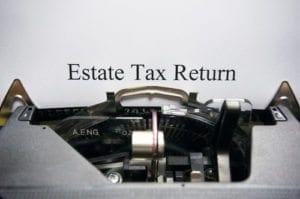Estate Taxes In Alberta
You are the executor (or administrator or personal representative) of an estate in Alberta. In preparing to have the will go through the probate process, you determine several things. For example, this includes trying to calculate the net value of the estate and how much each beneficiary inherits under the estate. Knowing that Alberta estate tax must be paid prior to the assets being distributed among the beneficiaries you need to figure out how much the estate’s has to pay? The Lawyers at Kahane Law Office based in Calgary, Alberta take the mystery out of taxable issues that come up when someone passes away.
No Alberta Estate Tax
The easy answer to this question is there is no Alberta estate tax specifically for dying. In other words, there will be no tax bill levied on the estate by virtue of the testator dying. This Alberta advantage of no inheritance tax is truly beneficial to the people of Alberta. However, there may be other tax consequences which you as the executor must be mindful of as you prepare to distribute the estate assets.
What Estate Taxes Are In Alberta?
In Alberta, we are luck in that there is no death tax. There is also no real inheritance tax. Many provinces charge an amount equal to a percentage of all assets that a person leaves behind. Obviously, this amount becomes significant with larger asset bases. As the administrator of an estate, there are some taxes that you, along with your estate lawyer in Alberta, will have to deal with. The following are some of the issues you will need to deal with.
Income Tax Liabilities
The law deems an individual to have sold all of her or his assets immediately prior to death. This is the trigger for most Alberta estate tax consequences. What this means is that if the individual had RRSPs or money in a RRIF, these assets are viewed to have been cashed out immediately prior to the individual’s death. Unfortunately this creates tax consequences. It then forms part of the Alberta estate tax requiring payment by the executor.
RRSPs are not tax-exempt but rather tax-deferred. This means that taxes become due and payable on the value of the RRSP when the RRSP is cashed out. Unless the deceased took advantage of things such as a spousal rollover or making a disabled child the beneficiary of the RRSP, the estate will be liable for the tax implications of the RRSP being cashed out at the time of the individual’s death.
Capital Gains
If a beneficiary inherits the house that the deceased lived in, there is no Alberta estate tax for capital gains taxes as the principle residence is exempted. However, if the deceased left a vacation property or a rental property to a beneficiary there may be capital gains taxes to be paid as the principle residence exemption is not applicable. This is an unavoidable item that need payment on someone’s passing.
Unpaid Tax Debts
One of the responsibilities of the executor is to apply for a Clearance Certificate from the government. The Clearance Certificate is the Canada Revenue Agency’s way of saying that no Alberta estate taxes (or any other taxes) owing by the deceased exist. In addition, it states that no returns exist owing to the deceased. It is possible that the deceased was not up to date on her or his tax obligations. If this is the situation, the executor will be responsible for settling this tax debt. This always occurs prior to distributing the remaining estate assets to the beneficiaries.
Knowing that no Alberta estate taxes exist is a useful bit of information for the executor. This allows for an easier calculation of how to distribute the estate to the beneficiaries. But be sure to talk with a qualified lawyer or tax specialist to ensure all tax obligations have been met prior to distributing the estate to the beneficiaries. Lawyers and accountants both contribute regularly to helping executors perform their role. This is not an out of pocket expense to the executor.
Finding An Alberta Estate Tax Lawyer In Calgary
Losing someone you care about has an emotional and stressful impact on most people’s lives. Avoid exposing yourself to personal liability for failing to deal with things properly. The laws surrounding wills and estate taxes are critical to administering an estate. The lawyers at Kahane Law Office in Calgary, Alberta assist you in all your related estate needs. CONNECT TODAY. You can reach us toll-free at 1-877-225-8817, or 403-225-8810 locally or email us directly here.

